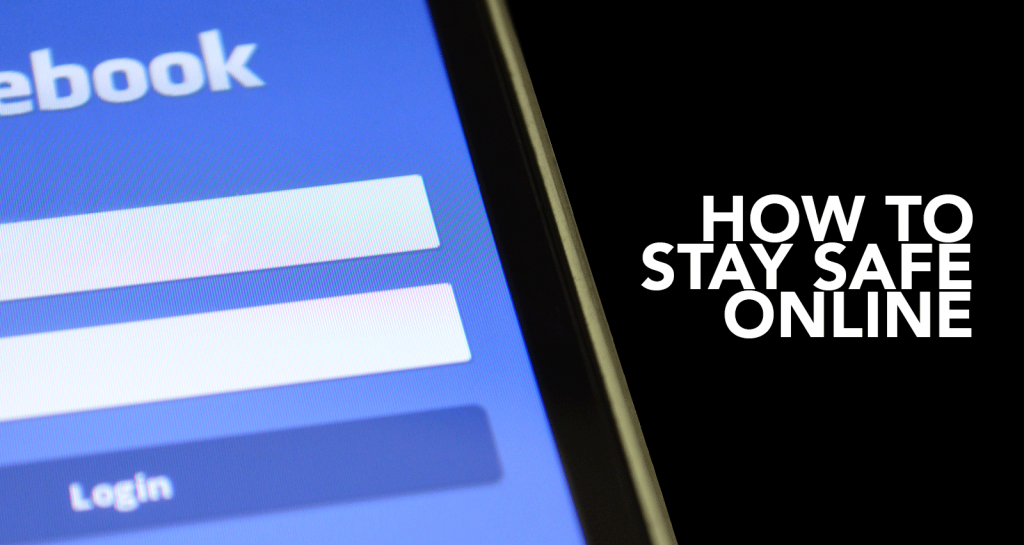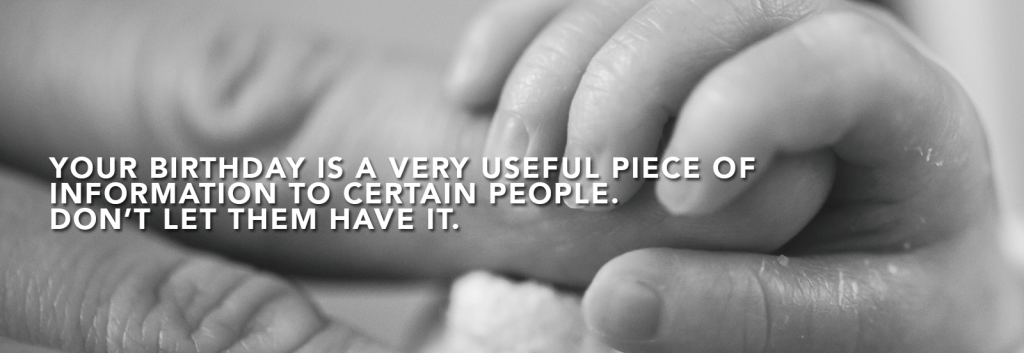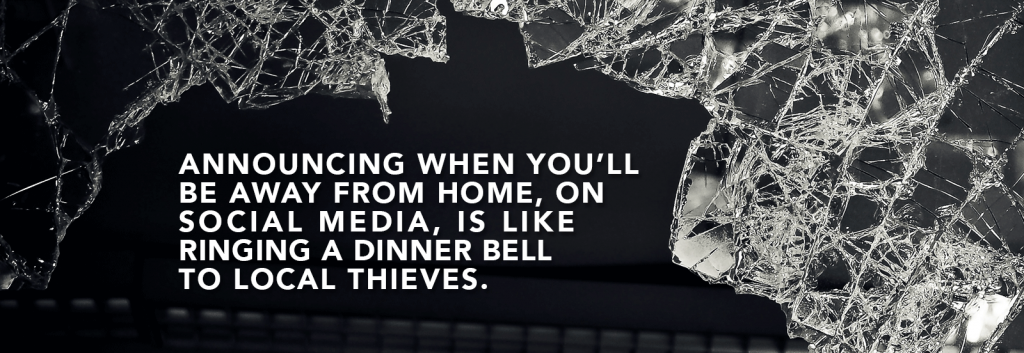
How to Stay Protected Online
The internet is an interesting place, full of fun facts, skewed statistics, ignorant comments and of course, pretty much anything else you could imagine. With that, and the fact that so many of us use the internet everyday, it’s important that we remind ourselves of the very real dangers out that we face when using it and how best to avoid them.
The best place to start is your social media.
There’s nothing wrong with posting about interesting developments in your life, but when it comes to sharing everything there is to know about you, you’re playing into the hands of some very crafty people who don’t necessarily have the best intentions.
As such, we’ve put together a list of some of the most overlooked security issues when people come to post and share things about themselves online:

- Birthdays
Posting your birthday on social media may seem like a good idea; the birthday wishes and messages from distant relatives seem to make it all worthwhile. However, your date of birth is an integral piece of personal information that is often linked with private data on other online services. Scammers and con artists can use your date of birth to gain access to the websites you visit, reset your passwords, answer your security questions and even set up accounts in your name.
- Location and movements
A tech-savvy burglar might single you out and watch your social media feeds like a hawk. If they think your house has valuables inside and they know your name, they’ve been known to wait until you post that you’re “out with the lads” or check into that trendy sushi restaurant downtown before breaking into your house and stripping the place bare. Alternatively, maybe an unwanted admirer wants to know where you are for some nefarious reason, in which case, “checking in” or otherwise sharing your location on social media is sure to make their job a lot easier.
- Your address
For many of the same reasons as the last point, you shouldn’t tell the world at large what your home address is. That information can be used to gain access to a wide variety of services, help burglars to identify a new target, tell a stalker where to start their search or implicate you in any number of crimes. Your friends and family already know where you live, do they really need a reminder?
- You Phone Number
Reverse look-up tools exist to help people match phone numbers to addresses, usually for commercial purposes – but unfortunately anyone with a credit card can use the same tools for no good. You also don’t want your phone number to be found by automated search engines that find, copy and then sell your phone number to annoying call centres around the globe. Like your address, the people you care about you probably already have your number (and if they don’t, you should seriously consider sharing that information with someone for emergency purposes), so they don’t need to be reminded. However, we recognise that sometimes you need to make a public number available, in which case we recommend using an internet-based telephone number. Both Google and Skype offer VOIP (Voice Over Internet Protocol) services that use what appear to be regular telephone numbers, but don’t compromise your safety by attaching any other personal information to those numbers.

- Geo-tagged pictures
Unless the picture that you’ve taken has been run through a “Geotag stripper,” it will contain information about where and when it was taken. For the same reason that you shouldn’t post your location online, don’t post pictures until you know they’ve had their geotags stripped away. Alternatively, wait until you’re in a time and place unrelated to your pictures, for example; posting your holiday pictures when you’re back at home, rather than while your away with your house standing empty.

- Holiday plans
Speaking of holidays, don’t mention your upcoming vacation on social media. If you say “Going to Bali for a week of fun, leaving for the airport now!! :)” you may as well be posting “Home empty will be empty for a week, have fun!! :)”. As we’ve said before, you don’t need to advertise your movements ahead of time.
- Embarrassing facts and pictures
This should go without saying, if you’ve done something that you may not want your family, employers or significant others, both current and future, to know about, don’t put it online. Social media posts can be hard to erase with any certainty and, while you might not think it’s a big deal at the time, who knows what will happen in the future?
- Work information
A lot of employers have social media policies, even the ones you might not expect. Obviously, government positions have security concerns because labelling yourself as a soldier, police officer or government employee could make you a target for blackmail. Even normal, day-to-day jobs will likely have a preference as to how you advertise your involvement with them online and, how you behave online when you’re both in and out of the office because by advertising yourself as being associated with them, you are advocating them. That means that anything you do online can be tied to them, thus making you a liability. Nobody wants a publicly listed employee to post that “they were soooo drunk last night” or get into petty internet arguments, even if they’re not talking about their business.
Want to know how accessible your life is online? Or maybe you’d like to know what your employees are posting publicly? Remember that Precise Investigation is a Government Licensed private investigation agency that’s worked with hundreds of private and commercial clients across Australia over the last thirty years. We’ve got the experience, resources and the skillsets required to have your investigation seen too quickly, efficiently and, most importantly, discreetly.
Thanks for reading!











